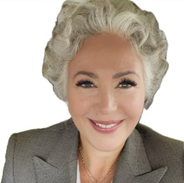Transforming Anxiety Into Confidence: Preparing for Job Interviews With Emotional Intelligence
A job interview can feel like a high-stakes test—your heart races, your palms sweat, and your mind overanalyzes every possible outcome. Anxiety before an interview is normal, but what if you could channel that nervous energy into confidence?
This is where emotional intelligence (EQ) becomes a powerful tool. Instead of letting fear take over, you can learn to manage stress, present your best self, and build genuine connections with your interviewer.
Here’s how to transform interview anxiety into confidence using emotional intelligence.
1. Recognizing and Managing Pre-Interview Anxiety
Anxiety thrives on uncertainty. The good news? Emotional intelligence helps you recognize and regulate these emotions so they don’t control you.
What’s Happening in Your Brain?
When you feel anxious, your brain perceives the interview as a threat and activates the “fight-or-flight” response. This can cause:
- Racing thoughts
- Shaky hands or voice
- Difficulty concentrating
EQ Strategy: Name and Reframe the Emotion
Instead of saying, “I’m so nervous,” reframe it as:
✅ “I’m feeling excited and prepared for this opportunity.”
Your body responds to excitement and anxiety in similar ways. By shifting your mindset, you take control of your emotional response.
EQ Strategy: Deep Breathing & Visualization
Practice box breathing before your interview:
🟢 Inhale for 4 seconds
🔵 Hold for 4 seconds
🟡 Exhale for 4 seconds
🔴 Hold for 4 seconds
Pair this with visualization—picture yourself confidently walking into the interview, speaking clearly, and connecting strongly with the interviewer.
2. Strengthening Self-Awareness for Authentic Responses
Interview anxiety often comes from feeling like you must perform rather than be yourself. Self-awareness helps you stay authentic.
EQ Strategy: Know Your Strengths & Growth Areas
Before the interview, ask yourself:
- What are my top three strengths, and how have they helped me succeed?
- What is an area I’m working on improving? How am I taking action on it?
Being honest about your strengths and growth areas shows self-awareness and confidence. For example:
❌ “I work too hard.” (Cliché answer)
✅ “I used to struggle with delegating tasks, but I’ve learned to trust my team by setting clear expectations and following up.”
Why this works: It shows awareness, growth, and problem-solving skills—key traits that hiring managers value.
3. Reading the Interviewer’s Cues and Adapting
A high EQ isn’t just about managing your emotions and tuning into others. Reading nonverbal cues helps you adjust in real-time.
EQ Strategy: Observe and Mirror
Pay attention to:
- Body language: Are they leaning in, nodding, or smiling? Engage with similar enthusiasm.
- Tone of voice: Match their level of formality and energy.
- Pacing: Avoid rushing your responses if they speak slowly and thoughtfully.
Mirroring (in a natural way) helps build rapport and connection, making the conversation flow more easily.
4. Handling Tough Questions with Emotional Intelligence
Some questions are designed to test your composure under pressure. EQ helps you respond with clarity and confidence.
EQ Strategy: Pause Before Answering
A short pause before responding gives you time to gather your thoughts and prevent rambling. Try:
Interviewer: “Tell me about a time you faced conflict at work.”
✅ Pause, breathe, and structure your response using the STAR method (Situation, Task, Action, Result).
✅ Speak calmly and focus on how you handled the situation with emotional intelligence.
Example response:
“In my last role, a teammate and I had different approaches to a project. Instead of reacting defensively, I asked about their perspective and shared my concerns. We found a solution that worked for us by focusing on a shared goal. This taught me the power of open communication in resolving conflicts.”
Why this works:
✔ Shows self-awareness and problem-solving skills
✔ Demonstrates the ability to stay composed under pressure
✔ Highlights emotional intelligence in action
5. Shifting the Mindset: The Interview Is a Two-Way Conversation
Many job seekers feel like the interviewer holds all the power, leading to self-doubt. But remember: You’re also evaluating if this company is the right fit for you.
EQ Strategy: Ask Thoughtful Questions
End the interview with questions that show you care about culture, growth, and values:
- “How does this team handle feedback and collaboration?”
- “What do you enjoy most about working here?”
- “What qualities make someone successful in this role?”
Why this works:
✔ Shows confidence and genuine interest
✔ Shifts the dynamic to a mutual discussion, not just an evaluation
✔ Gives you insight into whether the company aligns with your values
Final Thoughts: Confidence Comes from Preparation & Emotional Intelligence
The best way to transform anxiety into confidence is to prepare with facts and emotional intelligence. By managing stress, strengthening self-awareness, and building authentic connections, you’ll enter your next interview feeling in control, capable, and ready for success.
You deserve a role that values what you bring to the table. Approach each interview not as an exam but as a conversation—an opportunity to showcase who you are.
Ready to Take the Next Step in Your Career?
Find job opportunities and interview resources at USJobLink.com—where confidence meets career success!

Elizabeth Ruiz: Strategic Communication and Leadership Expert
Elizabeth Ruiz is a seasoned strategic communication and leadership expert, passionately dedicated to exploring how ethical leadership, psychology, and communication drive organizational success. With a career rooted in applying advanced leadership theories, Elizabeth’s work in management consulting, strategic HR, and organizational effectiveness helps corporate, governmental, and nonprofit organizations transform their management practices. When she isn’t teaching or studying as a student, she writes extensively on topics such as strategy, management, and the psychology of effective leadership.
Elizabeth’s approach is defined by her unwavering belief that true leaders are lifelong learners. Connect with Elizabeth on LinkedIn.
